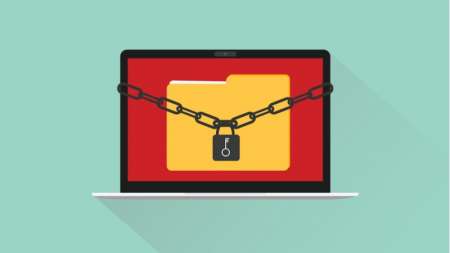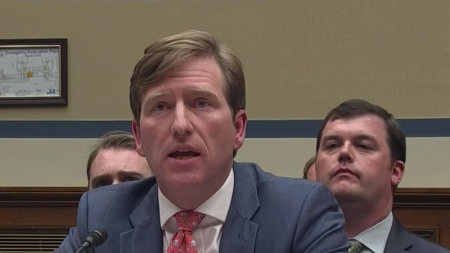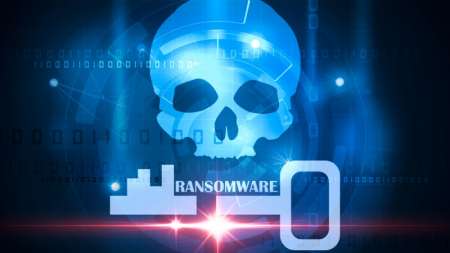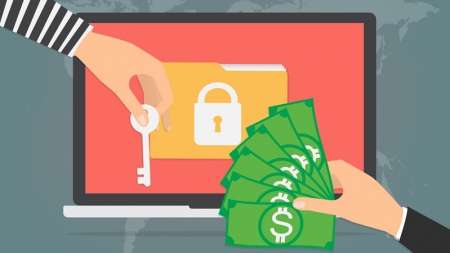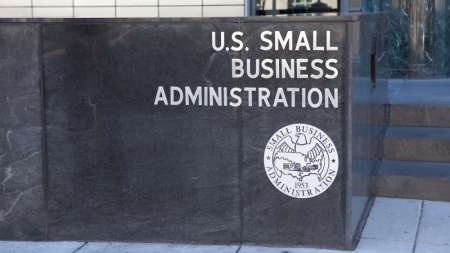CrowdStrike, the cybersecurity firm that gained attention during the impeachment proceedings, released its annual global threat report, which showed telecoms and public institutions are being increasingly targeted. […]
The FBI issued a warning regarding “high-impact” ransomware attacks on Oct. 2, stressing the risk they pose to U.S. businesses and organizations. […]
Cybersecurity and Infrastructure Security Agency (CISA) Director Christopher Krebs announced the agency’s strategic intent last month at Auburn University, but what does that strategy look like in action? […]
Rep. John Katko, R-N.Y., introduced the State and Local Government Cybersecurity Improvement Act on Aug. 30 to help state and local governments combat cyberattacks. The legislation comes in the wake of increasing ransomware attacks targeting state and local governments, including Katko’s own state. […]
About two-thirds of 2019 ransomware attacks in America have targeted state and local governments, according to an Aug. 28 report published by Barracuda Networks, a cybersecurity group. […]
The city of Albany, N.Y., confirmed on March 30 that it was hit by a ransomware attack that affected municipal government computers. […]
Norsk Hydro, an aluminum producer based in Norway, was hit hard by a ransomware attack on Tuesday. […]
Michigan Attorney General Dana Nessel warned Michiganders today that the information of 600,000 of the state’s citizens may have been compromised in a ransomware-caused data breach. […]
Jackson County, Ga., paid cybercriminals $400,000 to remove ransomware that infected its IT systems. The ransomware, known as Ryuk Ransomware, hit the county on March 1 and impacted multiple county agencies, including the Sheriff’s Office. […]
Cybersecurity technologies provider Symantec reported that ransomware activity fell by 20 percent in 2018 on a year-over-year basis, but that the focus of attacks shifted sharply toward enterprises and away from consumers last year. […]
North Carolina Attorney General Josh Stein released a report on Thursday that highlights the impact of data breaches on the state in 2018, and paired the report with a bipartisan bill to strengthen breach notifications to include ransomware attacks. […]
The ransomware attack that recently hit Tribune Publishing was perpetrated by an independent crime organization, rather than a nation-state, McAfee announced Wednesday. […]
The Department of Health and Human Services (HHS) last week released its Health Industry Cybersecurity Practices, a set of voluntary cybersecurity guidelines for the private sector that leverages the National Institute of Standards and Technology (NIST) Cybersecurity Framework to address cybersecurity issues across healthcare organizations of all sizes. […]
The incidence of ransomware attacks in the U.S. has leveled off since 2017 for a variety of reasons, including improved defenses by targeted organizations that have made such attacks less profitable for perpetrators, experts said Tuesday at the 2018 Symantec Government Symposium. […]
SBA has made it a priority to provide cybersecurity assistance for small businesses, reaching out to local chambers of commerce, technology vendors, and banks that serve small businesses to raise awareness of the benefits of cybersecurity threat prevention sharing through conferences. […]
The Inspector General of the Small Business Administration (SBA) found that the agency’s IT leadership needs to address the Federal Information Technology Acquisition Reform Act (FITARA) and cybersecurity threats. […]
Industry experts told Congress on Oct. 3 that regulations are necessary to secure the Internet of Things. “Is the industry doing enough to ensure the security of IoT devices?” Rep. Jamie Raskin, D-Md., asked at the IT Subcommittee hearing on the Cybersecurity of IoT. […]
Comodo Threat Intelligence Labs discovered a new strand of ransomware that was used in email phishing campaigns in the beginning of August and is being used in a current hacking campaign. […]
The cyberattack that spread across Europe on June 27 was declared not a ransomware attack after further observation by researchers. The “Not Petya” attack didn’t encrypt files on the infected computers. Instead, it wiped the entire drive, making it impossible to retrieve files if they weren’t backed up on another device. […]
Companies that paid the ransom to retrieve their data from the Petya ransomware attack have no way of receiving the encryption key. Although Symantec has verified the Ukrainian accounting service, MeDoc, as “patient zero” for the attack, the cybersecurity company hasn’t discovered who is behind the attack. The email account that the attack stemmed from has been shut down, so that companies that pay the ransom of $300 won’t receive the encryption key needed to return their data. […]
Another cyberattack with links to the stolen cache of National Security Agency materials is spreading across Europe on June 27, targeting banks, businesses, and a Ukraine power company. Infections have been reported in Russia, Ukraine, Spain, France, the United Kingdom, and India. […]
The number of reported Internet crimes and the costs incurred by those crimes are on the rise, according to the FBI Internet Crime Complaint Center’s recently released 2016 Internet Threat Report. The “hottest” Internet crimes of 2016 were business email compromise, ransomware, tech support fraud, and extortion. […]
No Federal systems have been affected by the WannaCry ransomware attacks that crippled thousands of computers this past weekend, according to Tom Bossert, Homeland Security adviser to the president. […]
There’s a new CTO at the National Archives and Records Administration….Inspector general may be out at NSA….And ransomware targets industrial systems. […]
Though the Federal government has certainly experienced ransomware attacks, experts speaking at the Armed Forces Communications and Electronics Association Cybersecurity Summit on Tuesday explained that it is not the primary target for ransomware hackers. […]
The U.S. Department of Health and Human Services Office for Civil Rights recently released new Health Insurance Portability and Accountability Act guidance on ransomware. […]
Ransomware attacks, which the FBI estimated could cost the United States $1 billion this year, have “become a real plague on the Internet,” according to Sen. Sheldon Whitehouse, D-R.I. As these attacks are becoming more sophisticated and destructive, the Senate Committee on the Judiciary addressed whether law enforcement has the right tools to foil them. […]
Law enforcement reported an increase in ransomware attacks during 2015, and it looks like these attacks will continue throughout 2016. To deal with the rising threats, the FBI posted recommendations. “These criminals have evolved over time and now bypass the need for an individual to click on a link. They do this by seeding legitimate websites with malicious code, taking advantage of unpatched software on end-user computers,” said James Trainor, the FBI Cyber Division Assistant Director. […]

